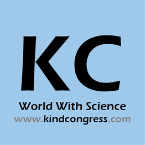With a line-up of world-class speakers, FANEOTRICS 2022 ME Conferences is proud to announce its “31st World Neonatal, Pediatric and Family Medicine Conference," which is scheduled to be held during December 15-16, 2022 in Prague, Czech Republic.
Why to Attend FANEOTRICS 2022?
The main goal of the conference is to bring together all of the world's leading researchers, students, paediatricians, neonatologists, family medicine specialists, professors, associate professors, young research forum members, and delegates to attend the upcoming faneotrics conference and contribute to future faneotrics innovations.
The FANEOTRICS 2022 conference will focus on the most recent and innovative advances in family medicine, paediatrics, and neonatal research. This year's international conference theme is "Current Emerging Trends in Pediatrics, Neonatal Medicine and Family Medicine Research," which reflects the most recent advances in faneotrics research.
Presenting a paper: The meeting Presenters will have the opportunity to present their research papers in front of a global audience of distinguished professionals from related fields, receiving both positive and constructive feedback. Also, there will be an exchange of ideas on similar topics of interest, which will go above and beyond for their future global collaborations.
Publication: Conference proceedings are always the best way to get your research papers published and indexed in high-impact journals.
Target Audience?
-
Pediatricians
-
Health Practitioners
-
Neonatologists
-
Primary Care doctors
-
Nurses
-
Students
-
Research Scholars
-
Family Physicians
-
Physician Assistants
-
Midwives
-
Pediatric Gastroenterologists
-
Research Institutes
-
Training institutes
-
Pharmaceutical companies engaged in manufacturing, development and commercialization of drugs and surgical equipment’s.
-
Educational Institutes
-
Associations and Societies
-
Hospital Administrators
Family medicine (FM), formerly known as family practise (FP), is a medical specialty that provides comprehensive health care to patients of all ages. They are the patient's first point of contact when it comes to health issues. The specialists are referred to as family physicians or family doctors. Family physicians are trained to perform procedures such as endoscopy, family planning, and early pregnancy evaluation.
The Division of General Pediatrics is dedicated to delivering exceptional clinical care to patients from all socioeconomic backgrounds and with all degrees of medical complexity, as well as performing cutting-edge health services research and training future academic leaders in the field. The purpose of comprehensive primary care nowadays is to keep children healthy.
The Pediatric Oncology Branch is focused on improving results so that children with tumour propensity syndromes can have better outcomes. Pediatric oncology conferences are part of a comprehensive approach to detecting and treating disease in children and adolescents. Tyke tumour is thought to have a global occurrence rate of around 175,000 per year and a passage rate of over 96,000 per year. In affluent countries, the mortality rate for young people is around 20%. In children and teenagers, paediatric hematologists/oncologists diagnose, treat, and manage the following conditions.
-
Leukemias, lymphomas, brain tumours, bone tumours, and solid tumours are all cancers
-
White blood cell, red blood cell, and platelet abnormalities are all examples of blood cell diseases
-
Disorders of bruising and clotting
Pediatric dentists are dental practitioners who specialise in caring for infants and children with special health needs. A paediatric dentist can offer a wide range of treatment options as well as the essential experience and training to care for a child's teeth, gums, and mouth. Children who do not obtain enough oral care are at danger of having tooth decay and infection, which can cause pain and discomfort for the rest of their lives.
The discipline of diagnosing and treating cardiac/heart diseases in children is known as paediatric cardiology. Cardiologists who specialise in treating children and infants are known as paediatric cardiologists. During Pediatric Cardiology Conferences, new research fields are encouraged, such as cardiac issues in newborns. Children and adolescents are taught about embryology and anatomy, physiology and pharmacology, biochemistry, pathology, genetics, radiography, clinical concerns, investigative cardiology, electrophysiology and echocardiography, and heart surgery. The Conferences are open to academics, physicians, healthcare executives, and policymakers. Pediatric cardiology is concerned with the diagnosis, treatment, and management of cardiac diseases in children.
Neonatal care is a nursing specialty that focuses on children who are born with a variety of conditions, including prematurity, birth abnormalities, infection, heart defects, surgical difficulties, and so on. Newborns are cared for by neonatal nurses from the time they are born until they are discharged from the hospital. Working in the NICU with ventilators and incubators, evaluating babies' responses, and educating parents how to properly care for their infants, neonatal practitioners have the most demanding obligations.
Women's health is a medical speciality concerned with the treatment and diagnosis of diseases and conditions that impair a woman's physical and mental well-being. Gynaecology is one of the most important branches of medicine concerned with women's health. Prenatal and childbirth therapies include, among other things, a nutritious diet, prenatal vitamins, and drugs. Midwifery cares for women during pregnancy, labour, and the postpartum period, as well as the newborn. The basic goal is to avoid health problems during pregnancy, recognise abnormal circumstances, get medical aid when necessary, and take appropriate action if medical help is unavailable.
Congenital cardiac illness, arrhythmias, and pulmonary hypertension in children are diagnosed and treated by paediatric cardiologists. Pediatric cardiologists and paediatric cardiac surgeons work together to establish the best therapies and tactics for children who may need heart surgery.
-
Pediatric pulmonary hypertension
-
Heart function in very sick new-borns
-
Electrophysiology
-
Fetal cardiology
-
Heart rhythm
-
Cardiac malformations
Nutrition is essential for good health. Infants take modest amounts of food at a time, necessitating a lot of attention during this time. The most important intrauterine environmental factor that influences foetal genome expression and can contribute to developmental problems later in life is paediatric nutrition. At all times, the youngster should be fed healthy protein-based foods such as meat, nuts, and eggs. Fibre-dense whole-grain breads and cereals should be served.
Pediatric nursing is the medical care given to children in a hospital or clinic setting from infancy until puberty. To provide the finest medical care for children, paediatric nurses routinely cooperate with other health experts. They are vital in keeping track of the health of young patients and giving care and support during their treatment. The current state of the practise is based on studies conducted in the field of paediatric nursing. The following are the most common tendencies.
-
Family centred care
-
High technology care
-
Evidence based practise
-
Atraumatic care
-
Cost containment
-
Prevention and health promotion
Pediatric psychology investigates the psychological effects of illness in children and adolescents, as well as the formation of healthy habits. Psychological challenges are addressed in a developmental framework, confirming the dynamic relationship that occurs between children and their families. Some of the most common areas of research include environmental factors and psychosocial development that contribute to the development of a disorder, outcomes of children with medical conditions, treating emotional and behavioural components of illness, and promoting proper developmental disabilities and health behaviours. Pediatric psychologists work in a range of settings and are responsible for a variety of tasks, including
-
Health promotion/prevention and early intervention programmes
-
Assist individuals who are mentally retarded or have developmental impairments
-
Psychological counselling and training for doctors
-
Public policy and public health.
The conferences are centred on basic paediatric research and child health. Clinical Pediatrics covers topics such as ADHD, Alternative Medicine, Antibiotics, Bicycle Injuries, New Combination Vaccines, Childhood Obesity, Head Lice, Human Papilloma Virus (HPV) Vaccine, Managing Hypertension, and New Diabetes Treatment. Pediatric Emergencies, Practice Management, and Resident Education are all topics covered in this course. Clinical paediatrics usually focuses on issues that arise in the course of practise, such as





